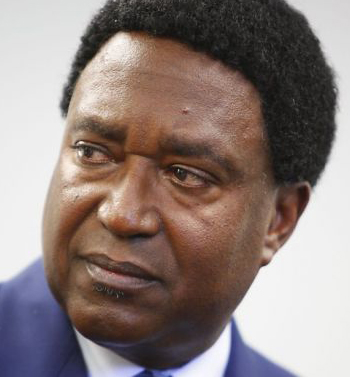Burris Educates Teachers on Race Bias that Youth Face in Criminal Justice System
Jan 17, 2014
Posted in Police-Public Safety
By Ken A. Epstein
Well-known Oakland civil rights attorney John Burris, who has gained a national reputation for representing victims of police abuse, spoke recently to local students and educators about the persistent and systemic injustices that young Black men face nationwide at the hands of police and the criminal justice system.
“It’s a very difficult world that young African American men and people of color are facing, and the criminal justice system has had an extraordinarily negative impact,” said Burris, speaking Jan. 14 on “Oscar Grant and Trayvon Martin: The Intersection of Race and Criminal Justice,” as part of a speaker series presented by the Oakland Unified school District.
Explaining a little of his own background, Burris talked about how he was deeply affected by the national news in 1955 when Mississippi sheriffs were found innocent of killing 14-year-old Emmett Till.

“I was a young boy at the time,” he said. “It was traumatizing. I felt then, it could have happened to me.”
Later, as a young lawyer, he began to work directly with the police, as a special prosecutor, mainly prosecuting gangs “I got to see how police were treating young men, and that kind of benchmarked my whole life,” he said.
“My major life work has been as a civil rights lawyer, (dealing with) police brutality and police misconduct,” said Burris. “I’ve also spent a great deal of time looking at police departments in terms of reform.”
In major cases where race and the media are involved, he said, there is always a question whether there the criminal justice system will render a just verdict.
“The system itself doesn’t always render the kind of justice that is consistent with fairness” in the eyes of the “African American community and people of good will,” he said.
He cited case after case where young African American and Latino men were killed by police or vigilantes, and the perpetrator was found not guilty. One of the more recent was the case of Trayvon Martin, who was killed in 2012 in Sanford, Florida.
“ A young man was killed who was not doing anything wrong. There was a sense of outrage by the African American community and all people of good will, and there was the bias of the criminal justice system, which did not reach a just conclusion.”
“It was a tragic outcome, but it was not inconsistent with the activity you see in the criminal justice system,” he said. “There is an inherent racial bias you see in the criminal justice system.”
“There is implicit bias in incarceration rates,” he said. “All throughout the system, Black individuals are treated more harshly: arrests, bail, charges and disparate sentencing.”